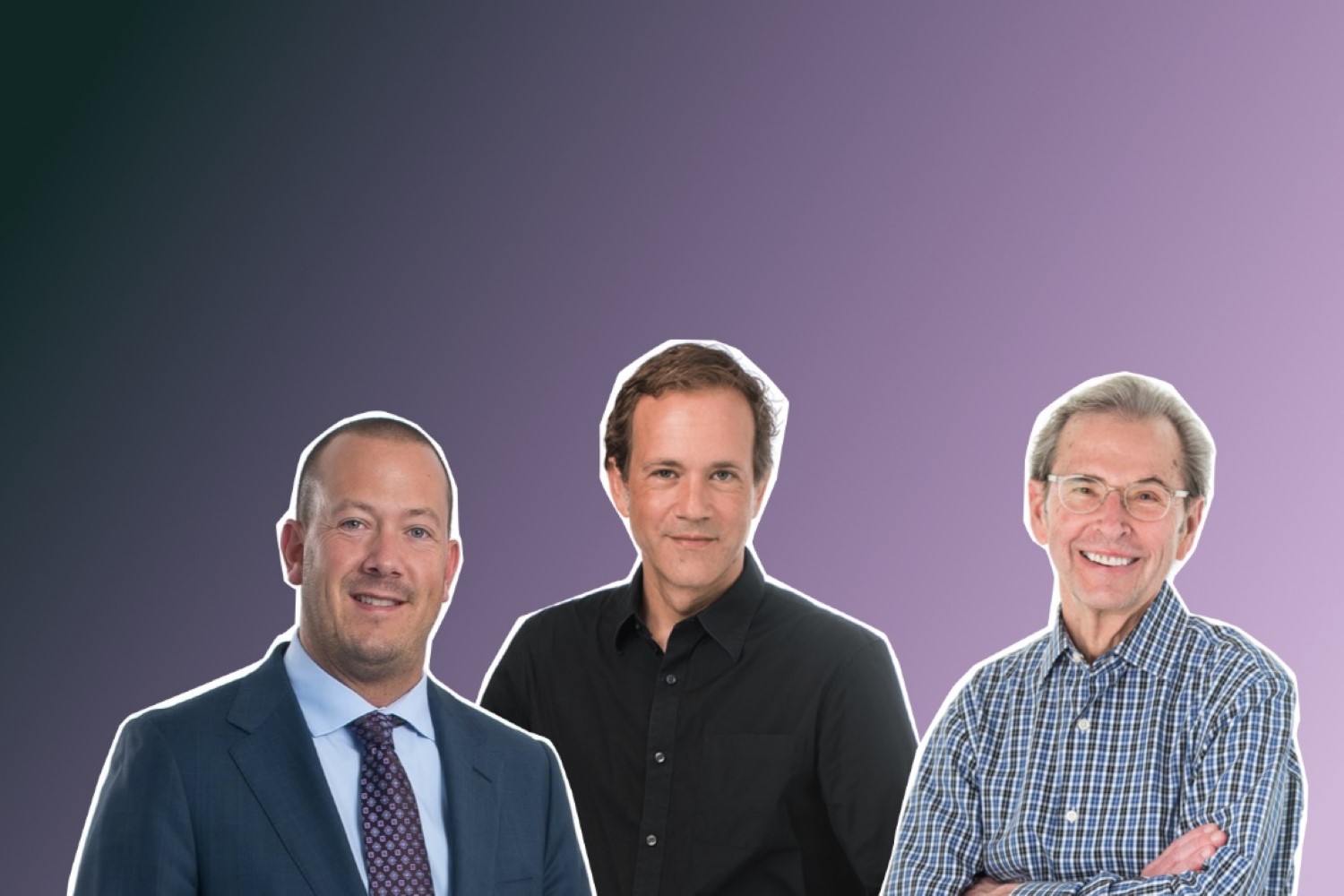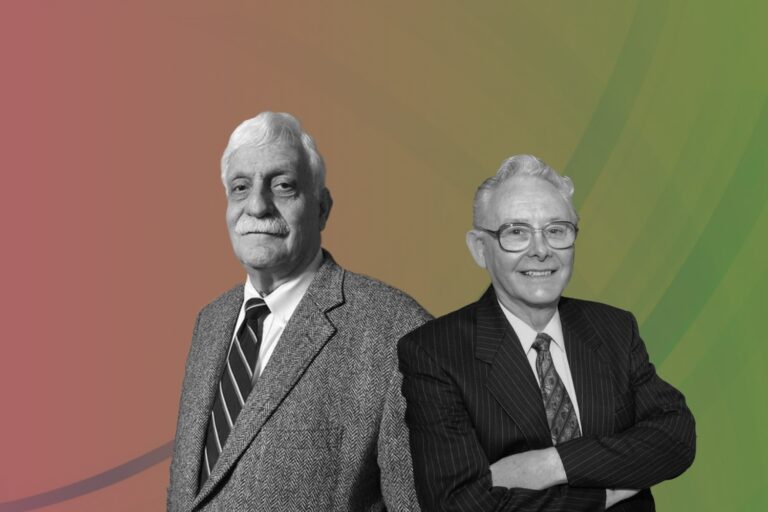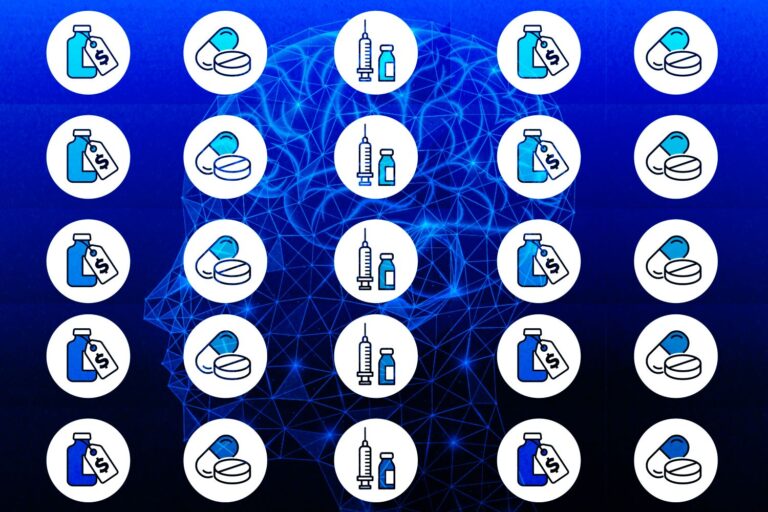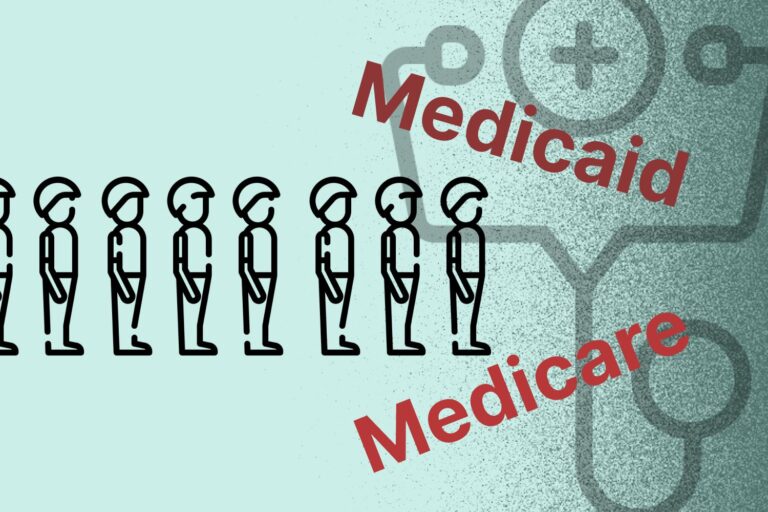Caption Health to “Vibrate” Health Tech Side & Portrait Future-Fit Landscape
Most people find it difficult to picture a world without sound. It’s the very first thing we encounter when we wake up in the morning and also the last perception we’re conscious of before we fall asleep at night. During the day, we enjoy our world via sound by listening to music, joining in conversations, collecting information from podcasts and television and a myriad of other cases we accept as normal.
But since sound is an actual physical wave, people can manipulate it to do more than just keep them entertained during the daily commute. There are many other potent applications of sound waves, especially in healthcare.
Talking about sound waves applications in healthtech industry, Caption Health can’t be outside of the list for its AI ultrasound innovation.
Founded in 2013 by Kilian Koepsell and Charles Cadieu. This duo leads the company’s attempts to use the earliest advances in artificial intelligence and deep learning to deliver the diagnostic power of ultrasound to more healthcare providers, democratizing access to treatment and improving patient outcomes.
As healthtech is approaching its golden era, startups in the sector massively emerge with disruptive solutions that improve the system as a whole. These growing companies deserve to get the public’s attention too, for all the meaningful things that they do. At caption Health, there are so many insights that are going to impress people. Let’s read on!
The Vibration of Artificial Intelligence and Ultrasound
Prior to the inception of Caption Health, Dr. Charles Cadieu was a specialist in deep learning at MIT and Berkeley and was a founding member of IQ Engines, acquired by Yahoo!. As for research scientist Kilian Koepsell, he’s spent his career focusing on the potential of deep learning to solve healthcare issues. The duo already has their professions before forming Caption Health together.
When Kilian Koepsell and Charles Cadieu set out searching for the challenge they wish to address, there exist two main “lodestars” that always speak loud. Firstly, they desired to have a positive impact on the healthcare system by presenting diagnostics further up the care continuum in order to make healthcare more preventative and more accessible.
Second, regarding Charles Cadieu specialty in an artificial intelligence field known as deep learning, the two wanted to utilize this technology that had recently radically transformed Silicon Valley.
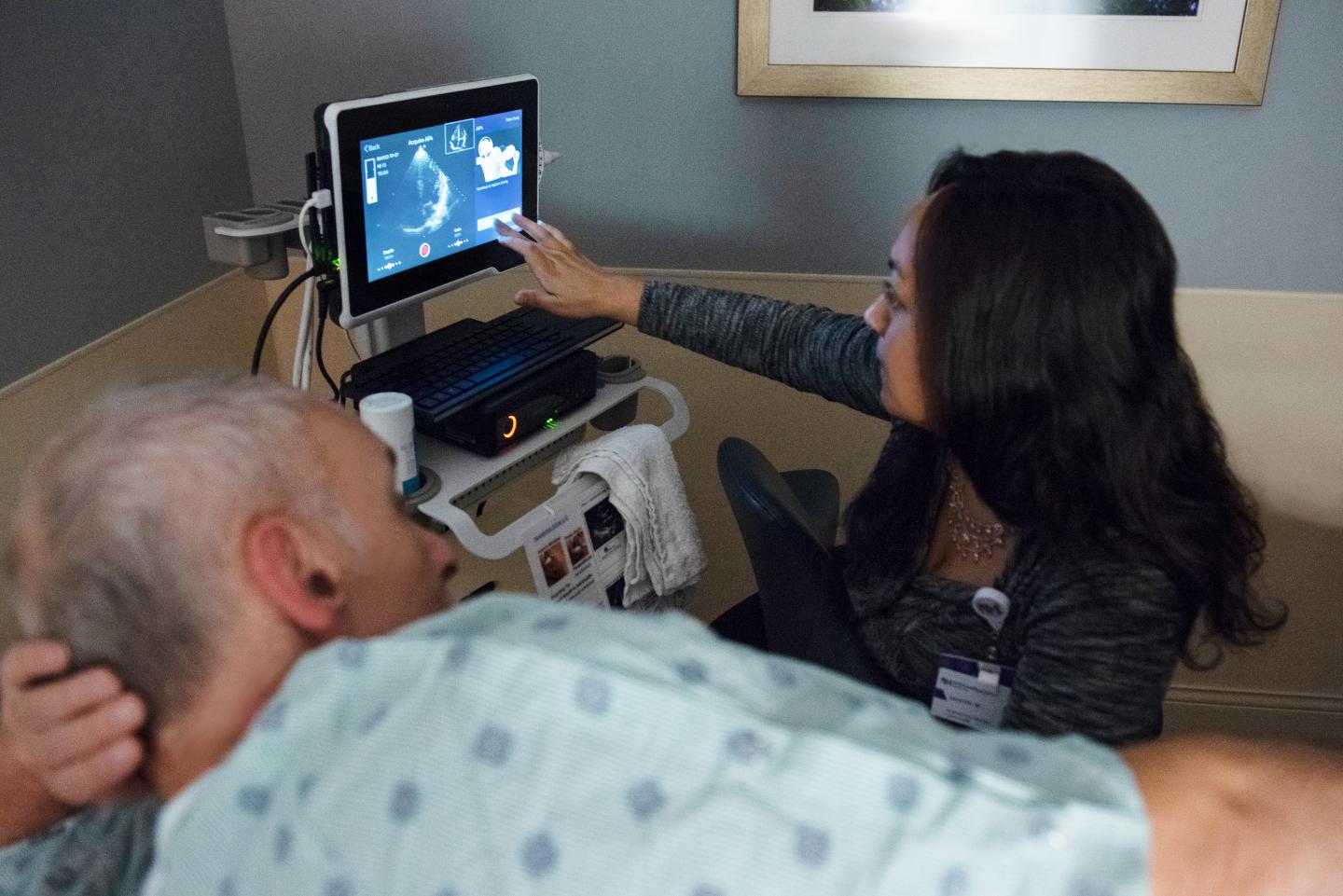
With those elements, the pair acknowledged the right blend: decentralizing the expertise needed to perform medical ultrasound and creating Caption Health.
Prior to their AI-guided ultrasound technology, known as Caption AI, clinicians had to learn sophisticated hand-eye coordination movements as well as how to identify and analyze high-quality ultrasound images.
Thanks to its well-placed appearance, all those clinical burdens were eased. Now, the startup empowers far more medical providers to acquire and interpret ultrasound exams to benefit their patients.
Caption Health has been in a game for a while since its 2013 inception, but until the pandemic arrived, people started to realize how essential their solution was.
That adds to the idea why Caption AI has become even more important than ever before for facilitating healthcare providers, regardless of prior ultrasound experience, to perform these critical exams at the point of care. Cardiovascular ultrasounds, according to research, can better identify COVID-19 individuals who are at an increased risk of passing away.
At the patient’s bedside, pictures can now be taken to aid in diagnosis and management without exposing a neonatologist or requiring more personal protective equipment (PPE).
For instance, one of their clinical partners in New York who was in charge of managing the COVID-19 surge stated that Caption AI impacted patient management in over 70% of cases.
Caption AI was put to the test in a very difficult healthcare environment, and the insights learned are going to reimagine healthcare even after the epidemic.
While the press is talking more about ultrasound – the tenet of Caption Health that drives them conversion and revenue, not many people understand this advance, or more specifically, how Caption Health works. The next part will help you understand their technological advance.
Ultrasound Application that Eases Medical Burden out
With a goal of democratizing medical imaging, the firm originally intended to concentrate on ultrasound as a modality. Since it has no negative effects and has become considerably more accessible and compact over the past 1020 years. Today, you can even get a handheld probe that you can connect to your iPhone.
Caption Health noticed that although the equipment was accessible at much cheaper price to many more people, it presented a big burden or roadblock to get this ultrasound utilized by more people, because it is truly very challenging to get good ultrasound images.
Also then, once people have acquired a so-so ultrasound image, the next step is to have them understand what’s in front of their eyes, interpret it, and detect diseases. The startup reasoned that if they could teach an AI to perform both of these tasks—guiding the creation of a decent ultrasound image and interpretation, they would be able to make ultrasound images and medical imaging generally available to everyone on the planet.
There are basically two tasks for machine learning to perform in this process, and both involve computer vision and understanding. The first step is to place an ultrasound probe on your body, this is why cardiac ultrasonography was used as the starting point.
“If you put it on your chest and you see a piece of your heart, then it is really difficult to understand how you have to rotate, and move, and angle this ultrasound probe to get the image of the heart that you want to see, that looks at a specific ventricle or a specific valve. This is learned typically by experts over many weeks, months, and years,” explained Kilian Koepsell.

The startup basically uses machine learning to comprehend how the visuals and probe’s position relate to one another in 3D space and then direct users to the correct area without requiring them to understand what they are even looking at.
That is the first component, ultrasound guidance. The device will then automatically record the image whenever you reach a decent one. “Then there’s a second task. As a non-expert, you don’t really know what you’re looking at,” shared Kilian Koepsell.
One thing has to be said again, the startup uses machine learning to train on lots of ultrasound images, with labels of different diseases and conditions to recognize what’s going on in the image. So certainly, machine learning is a highly important enabler for the application that the business chose.
The fascinating thing about ultrasound is that it can be used on most human organs and can identify a wide range of disorders. Because it is always moving, the heart is perhaps one of the most challenging organs to image.
Yet, by simply glancing at the images, you can see a wide range of different heart conditions. You can identify several structural heart disorders if the heart is not pumping effectively, if it is enlarged, if the vulva is not closing properly, or if any of these conditions exist.
Their initial goal is to assist the user in taking specific heart measurements so that the diagnostic work may then be left to doctors and not required of the AI system, for a reason that there’s a little bit resistance to having the AI make the final decision about a disease state.
What exactly the startup did is, for example, one of the measurements like the pumping function of the heart.
In this examination, users can ask what percentage of the blood in the left ventricle is squeezed out with every heartbeat. Once the heart has expanded and contracted, users would traditionally segment the picture and calculate the volumes to determine how much blood is being pumped out of the heart.
Caption AI employs AI or a deep learning system to analyze the heart’s video clip before regressing a number, a percentage, and the amount of blood that is expelled. Ejection fraction is the term for that. That is probably the most important parameter of the heart.
Similarly, people can do this with all kinds of other measurements there. The order of hundred measurements you can conduct on the heart, which then collectively offer you a good picture of how normal or unhealthy the heart might be.
The primary objective of the deep learning model is to come up with these measurements, and then leave it up to the healthcare professional to make decisions based on that.
Ultrasound is a safe, extremely effective diagnostic tool — but it can be hard to execute, which takes years of specialist skills to learn, and image quality can vary. But Caption Health has mastered that tool which is so important in healthcare technological adoptions today. The instrument not only has their name engraved to the honor board, but also gets them strong foundation of finance.
To Financially Hit the Ground Running
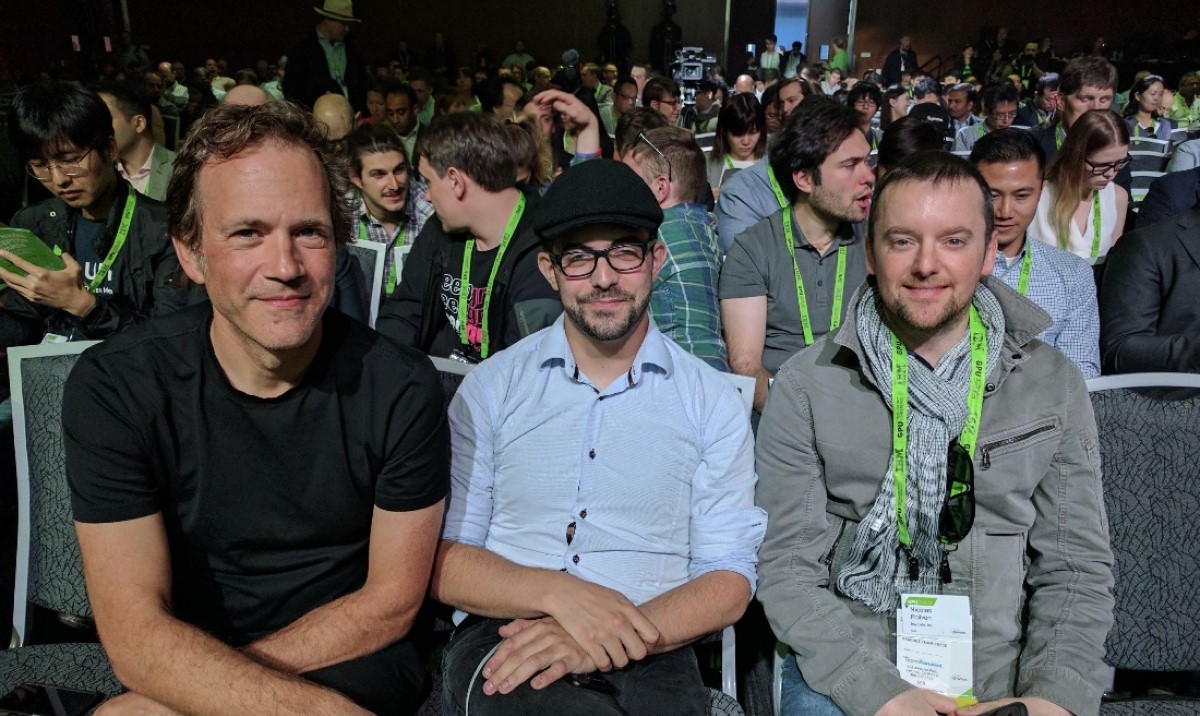
Since the startup launch day, Caption Health has raised a total funding of $62.4M over 3 major funding rounds. Their latest funding was raised on Jul 15, 2020, from a Series B round.
In the latest round, the startup closed its funding round with $53 million to further develop and commercialize its FDA-cleared, AI-guided ultrasound technology that broadens patient access to the highest and vital care.
The financing was led by existing investor DCVC. Together with previous investor Khosla Ventures, other participants included new investors Atlantic Bridge and Edwards Lifesciences, a market leader in cardiovascular medical devices.
During its lifetime, Caption Health is funded by 19 investors. The most recent investors are LDV Partners and Gopher US Partners.
In 2019, Caption Health received clearance from the U.S. Food and Drug Administration (FDA) for its first product. It’s the testament to their “substantially equivalent” product. Once “pre-market clearance” is received from the FDA, their medical tools can be distributed commercially immediately.
The business has also won numerous honors and accolades for its cutting-edge technology and ability to revolutionize healthcare. Caption Health was listed on Fast Company’s list of the World’s Most Innovative Companies in 2020 and was recognized by CB Insights as one of the Top 100 Global AI Startups.
For its AI-powered ultrasound technology, which has the potential to enhance patient outcomes and broaden access to medical imaging, Caption Health has been successful in obtaining investment and acclaim. However, as a privately held company, its financial performance beyond its funding rounds is not publicly available.
Besides financial abundance, the startup leans hard to collaborate with the other players with the same goal to enhance their strength in the industry. They team up with select developers to provide a broad set of best-in-class algorithms that assist in the interpretation of ultrasound images. This indicates their distinct capacity to help early disease identification and strengthens the stability of the platform.
The startup continues to apply this strategy of teamwork in 2023. Recently, Caption Health and GE HealthCare have drawn in public attention when these two companies came into an acquisition.
To Team up With Giants for Expansion of Ultrasound Advances
Leveraging Caption AI solutions, ultrasound tests can be quicker and faster, enabling a broader variety of healthcare practitioners to undertake basic echocardiography evaluations. That is the core reason why numerous medical organizations want to adopt Caption Health solution, and GE Healthcare is not the exception.
On February 09, 2023, GE HealthCare, a top international precision care innovator, announced an agreement to acquire Caption Health.
GE HealthCare Ultrasound President and CEO Roland Rott shared that, “Guiding ultrasound users during examinations with the help of AI is of growing importance, especially as we reach a broader set of healthcare professionals.
He added, “Caption Health’s AI applications help enable reliable, consistent ultrasound examinations to deliver more precise diagnoses, improved treatment decision-making, and ultimately improved patient outcomes. This tuck-in acquisition will help expand affordable access to ultrasound imaging to novice users and is aligned with a broader shift to precision care globally.”
Heart failure is the most frequent diagnosis for hospitalized individuals over the age of 65 in the United States, and the main method deployed to detect it is cardiac ultrasound scans. It adds to millions of deaths globally annually, but initial signs like fatigue or shortness of breath are commonly confused for normal aging symptoms.
In spite of the fact that 46% of newly diagnosed heart failure patients had potential symptoms six months prior to diagnosis and that intervention would have had a greater impact on slowing the disease’s progression, a study found that 38% of new heart failure patients receive their diagnoses in acute care facilities.
Heart failure is referred to by doctors as “the silent killer” since it is so simple to dismiss symptoms until it is too late. It continues to be the top cause of death in the country, and cases have increased during the COVID outbreak.
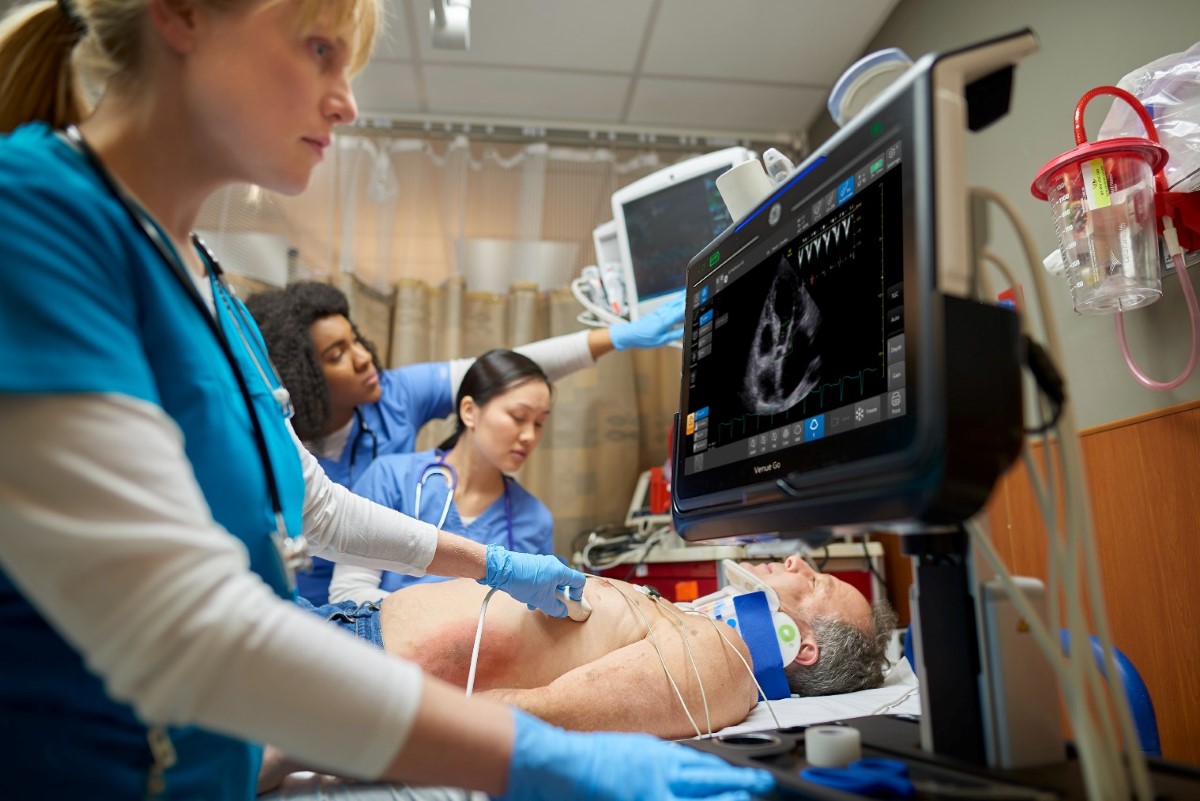
According to Caption Health CEO Steve Cashman, blending the company AI applications with GE HealthCare’s ultrasound devices will help accelerate their goal to detect disease earlier, when an easily obtained diagnostic image can be a great equalizer to health quality and outcomes. In the end, this will save expenses and improve treatment.
Caption Health will continue to offer managerial and administrative services to associated medical care providers as part of this acquisition (collectively referred to as “Caption Care”).
The Caption Care service is designed to support early diagnosis and detection before diseases like heart failure become more challenging to treat by providing trained technicians across the nation outfitted with the Caption Health AI technology to perform cardiac ultrasounds in alternative sites of care and, in the future, in the comfort of patients’ homes.
Bottom lines
The pandemic has raised a pivotal issue in the healthcare industry, that was the lack of clinical decision support (CDS) tools. This contributes to the lager trend in technological adoption in the medical area. The past few years have seen the FDA clear dozens of algorithms and CDS tools. Within the area of cardiovascular diagnostics specifically, we see such potential health technology firms as Ultromics, Eko, and now we have Caption Health.
The healthtech sector is still in its initial phase to grow into a mainstream, and so is Caption Health. We don’t see much information about the startup, perhaps they are preparing for something even more fascinating to come. Caption Health doesn’t need any caption, partly because their solution has already been giving real outcomes to the industry.

